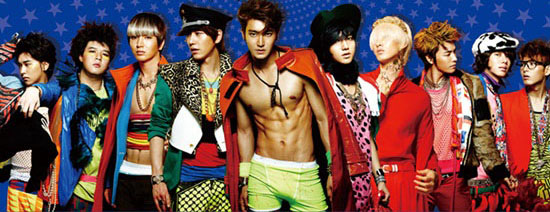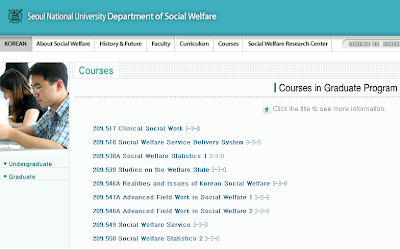 |
| Seo Inguk (Gugi baby why so cute??? *0*) |
Hangeul
Ayo, This is for the… Heart broken people,
People who wanna ride a time machine,
Swings and Mr. 서인국
Now turn off the lights
Hey!
화창하게 맑은 날에도
슬픈 네 눈이 보여
언제나 매일 우린 찌푸리며 티격태격
깨져버린 유리잔처럼
날카로운 말들을 뱉어
이미 다친 맘엔 반창고도 듣질 않아
*그때로 돌아가 우리 다시 시작한다면
같은 실순 안 할 텐데
이대로 우리 처음 시작했던 그날 그 길로
다시 돌아가고 싶어
**이게 웬일인걸 난 네가 부담스러워
우리의 풋풋하던 만남도 설레이던 걸음도
이럼 안되는 걸 널 사랑하는 일이
하루하루 피곤해져 누가 두통약 좀 처방해줘
Time Machine (x6)
돌아오는 기념일에도
단념한 표정이 보여
다른 연인들은 속삭이며 알콩달콩해
우리와는 너무 먼 얘기
이별이 다가온 건지
벌써 몇 시간째 투덜대는 말투잖아
* Repeat
** Repeat
Time Machine (x6)
Swings, Uh!
정말 지겨워, 한숨만 나와 헤어지지고? 그저 웃지 하하
근데 손은 안 떼져, 왜일까? 너가 전화하지 않길 바래, 매일 밤
서로의 사생활을 인정해야 했어 폰을 맨날 확인해 그만해 좀
니가 유학이나 갔음 해 가끔은 인생은 노래래 우린 서로에게 잡음 뿐 (말이 안 통해 우린, 알아?)
Time Machine (x6)
(That’s how I feel) Time Machine
Romanji
Ayo, This is for the… Heart broken people,
People who wanna ride a time machine,
Swings and Mr. Seo In Guk
Now turn off the lights
Hey!
hwachanghage malgeun naredo
seulpeun ne nuni boyeo
eonjena maeil urin jjipurimyeo tigyeoktaegyeok
kkaejyeobeorin yurijancheoreom
nalkaroun maldeureul baeteo
imi dachin mamen banchanggodo deutjil anha
*geuttaero doraga uri dasi sijakhandamyeon
gateun silsun an hal tende
idaero uri cheoeum sijakhaetdeon geunal geu gillo
dasi doragago sipeo
**ige weniringeol nan nega budamseureowo
uriui putputadeon mannamdo seolleideon georeumdo
ireom andoeneun geol neol saranghaneun iri
haruharu pigonhaejyeo nuga dutongyak jom cheobanghaejwo
Time Machine (x6)
doraoneun ginyeomiredo
dannyeomhan pyojeongi boyeo
dareun yeonindeureun soksagimyeo alkongdalkonghae
uriwaneun neomu meon yaegi
ibyeori dagaon geonji
beolsseo myeot siganjjae tudeoldaeneun maltujanha
* Repeat
** Repeat
Time Machine (x6)
Swings, Uh!
jeongmal jigyeowo, hansumman nawa heeojijigo? geujeo utji haha
geunde soneun an ttejyeo, waeilkka? neoga jeonhwahaji ankil barae, maeil bam
seoroui sasaenghwareul injeonghaeya haesseo poneul maennal hwaginhae geumanhae jom
niga yuhagina gasseum hae gakkeumeun insaengeun noraerae urin seoroege jabeum ppun (mari an tonghae urin, ara?)
Time Machine (x6)
(That’s how I feel) Time Machine
English
Even on a clear sunny days
I see your sad eyes
Everyday always we frown and fight
Like broken glass
We split out sharp words
Bandages don't work on our already broken hearts
If I could go back and start over
I wouldn't make the same mistake
To that street that time when we first began
I want to go back
What is this, I feel uncomfortable
Our fresh meeting and heart fluttering walks
It must not be like this, loving you
Everyday is tiresome somebody prescribe me a painkiller
Time Machine (x6)
On our anniversary
I see your face has given up
Other couples whisper happily
This is all a distant story
I wonder if the end has came
It's hours already that you mutter
* Repeat
** Repeat
Time Machine (x6)
Swings, Uh!
Really sick and tired, and the break up with me just sigh? Just laugh haha
But I don't take hands off it, wonder why? I hope you don't call, every night
Had to acknowledge each other's privacy
Always check the phone, just stop it a bit
You learn or be gone
Sometimes life is a song, we seeing each other is the only noise (we can't talk, you know?)
Korean lyric: melOn
Hangeul & English translation: Resty Armenia
TAKE OUT WITH FULL CREDIT
DO NOT REPOST






